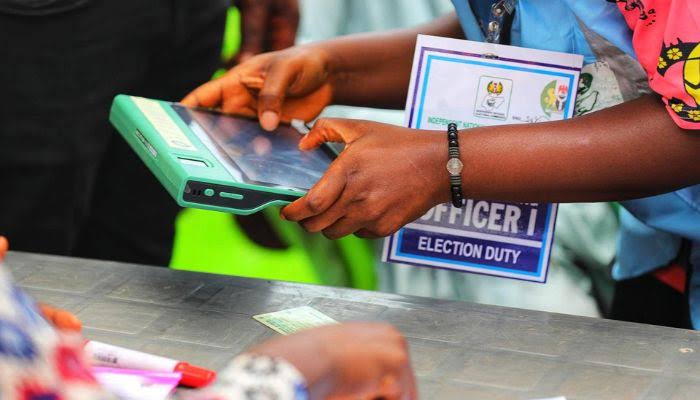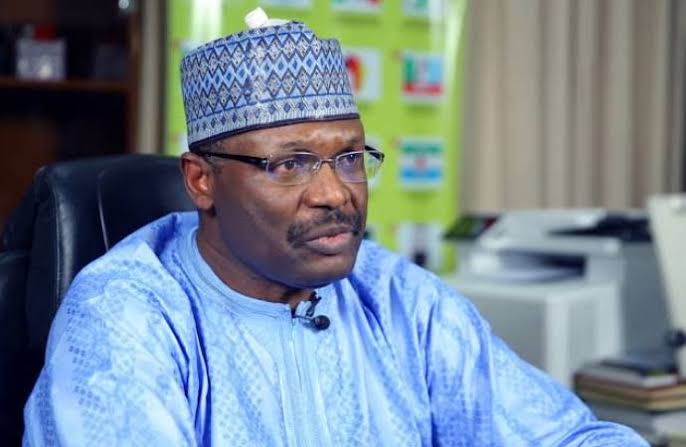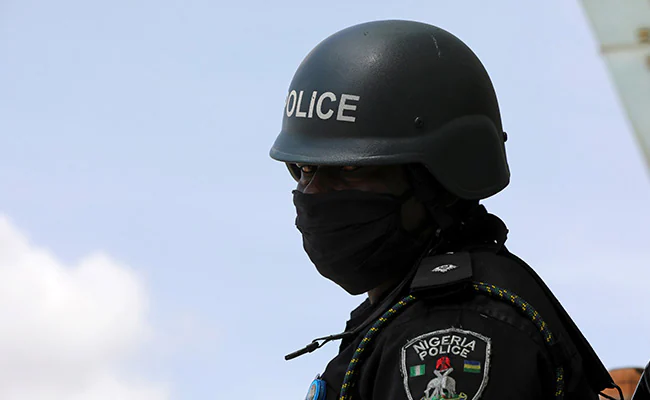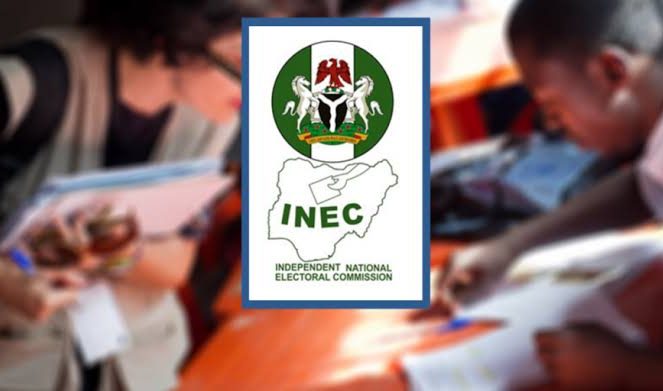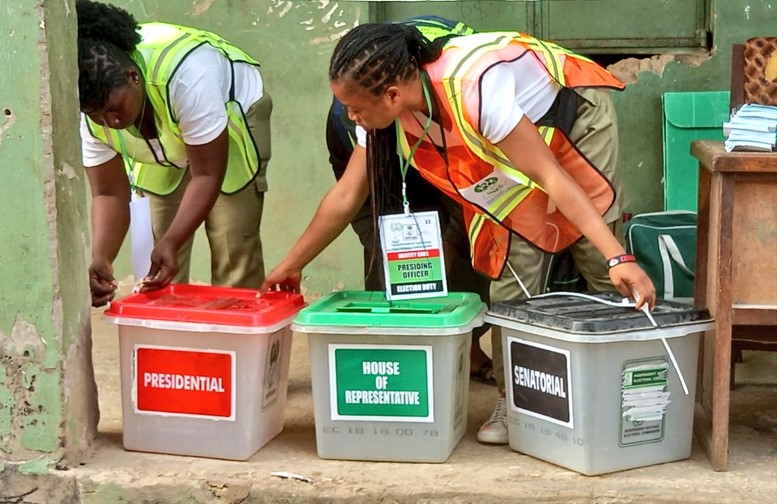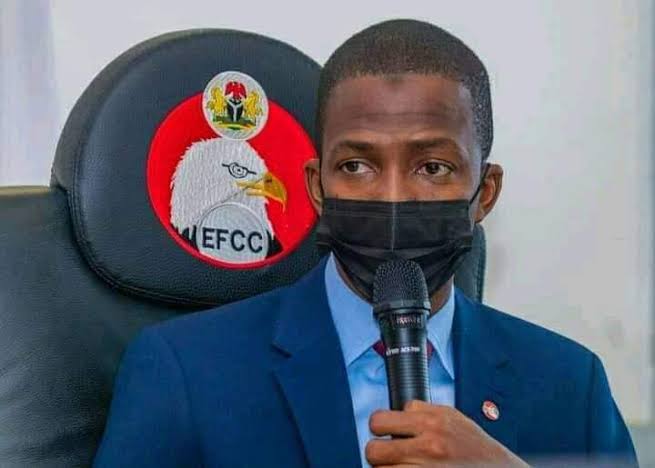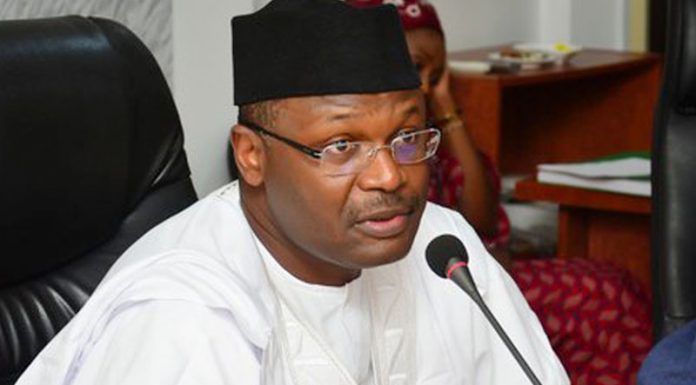… confusion, anger greets INEC’s shoddily conducted poll
… international observers say INEC not transparent
…as voters claim their votes did not count
…Abdulsalaam calls for peace
…Obi pleads for calm
… PDP demands for outright cancellation
… APC says figures don’t lie
Nigerians for once believed that Nigeria through INEC could change the change that has refused to be changed as they went to the polls last Saturday but the outcome turned out to be a soured taste.
The catalogue of condemnations that trailed INEC’s inadequacies and technical dislocations is fast making Nigerians to think twice about the political entity known as Nigeria.
The question on the lips of Nigerians centres around the fact that can we ever get it right despite several attempts to right the wrongs of the past.
Nigeria is one country where men are bigger and stronger than the institutions put in place to regulate the affairs of men.
OBSERVATIONS:
The EU Observation Mission did put it succinctly that:”Fundamental freedoms of assembly and movement were largely respected, yet the full enjoyment of the latter was impeded by insufficient planning, insecurity and the prevailing Naira and fuel shortages.
“Abuse of incumbency by various political office holders distorted the playing field and there were widespread allegations of vote buying. Media provided an extensive coverage of the three leading campaigns, while disinformation interfered with voters’ right to make an informed choice on election day.
“The EU EOM is continuing its observation of the ongoing collation and tabulation of results throughout the country.
“INEC’s operational capacity was hampered by the ongoing fuel and Naira shortage. Insecurity prevented it from accessing some Local Government Areas (LGAs), notably in the South. Attacks on INEC premises, including just days before polling, hindered preparations in affected areas, while instilling fear in voters. Overall, stakeholders had expressed confidence in INEC’s independence, professionalism, and voter information efforts, but this decreased ahead of elections.
“INEC lacked efficient planning and transparency during critical stages of the electoral process, while on election day trust in INEC was seen to further reduce due to delayed polling processes and information gaps related to much anticipated access to results on its Results Viewing Portal (IReV).
On the other hand, NDI/IRI, in its interim report said “Despite large crowds in some polling stations and long waits, Nigerian voters demonstrated commitment to participate in the process and a strong desire to have their voices heard.”
“The NDI/IRI 40-member joint IEOM was deployed across all six geopolitical regions of the country, and observed all stages of the voting process. Their observations informed preliminary findings and 27 practical recommendations to improve future elections.
“The mission notes that despite the much-needed reforms to the The Electoral Act 2022, the election fell well short of Nigerian citizens’ reasonable expectations.
” Logistical challenges and multiple incidents of political violence overshadowed the electoral process and impeded a substantial number of voters from participating.
“Ongoing currency and fuel shortages also imposed excessive burdens on voters and election officials, and Nigerian marginalized groups, especially women, continue to face barriers to seeking and obtaining political office.
“The delegation observed that late opening of polling locations and logistical failures created tensions and the secrecy of the ballot was compromised in some polling units given overcrowding.
“At the close of the polls, challenges with the electronic transfer of results and their upload to a public portal in a timely manner, undermined citizen confidence at a crucial moment of the process.
” Moreover, inadequate communication and lack of transparency by the Independent National Electoral Commission’s (INEC) about their cause and extent created confusion and eroded voters’ trust in the process.
The above reports captured what truly transpired in Nigeria on Saturday and the aftermath confirmed that INEC was not really prepared for this election despite the several promises INEC made to convince Nigerians that their votes must count.
The common denominator from both reports is INEC was not transparent in the conduct of the election.
Former President Olusegun Obasanjo’s response:
Obasanjo’s call for cancellations of red spots and alleged excessive manipulation of results pervaded the election. The BVAS too were not activated and the apex electoral umpire cannot feign ignorance that his officials were not corrupted.
Tactically, some of the reports of the international observers tallied with the position of the former president.
Labour Party’s response:
The party condemned in the strongest terms, the politically motivated attacks on Monday on some citizens in parts of Lagos State because they were believed to have voted for the LP.
These attacks have been meted out to indigenes and non-indigenes alike.
It is most regrettable that political thugs would single out citizens who exercised their constitutional rights to vote for candidates or parties of their choice.
In keeping with its core value of political decorum, the Labour Party thanks its supporters and indeed all Nigerians living in Lagos who have exercised their fundamental rights to vote according to the dictates of their conscience.
Abdulsalaam’s response:
The former military president, Abdulsalaam Abubakar who is also the chairman of the Peace Committee calls for calm.
Hear him:
“We commend Nigerians for turning out in mass to exercise their civic duty by voting in the February 25 elections. We took note of their patience, dignity and enthusiasm which Nigerians lined up to vote despite observable challenges in the polling units.
” Along with millions of other Nigerians and the international community, we have followed developments since the commencement and end of the Presidential and the National Assembly elections last Saturday.
” Not unexpectedly, the elections got on to a rather rocky start with the problems around logistics and accreditation processes across the country. On balance, despite these glitches, the elections were peaceful across most part of the country.
“However, now that the process of casting our votes has been largely concluded, the challenge now lies with the collation of the results. We perfectly understand that Nigerians are quite disturbed by these developments. Against, this backdrop, we make the following appeals.
” Nigerians must be reminded that the world has invested a lot of good will towards us in these elections. We have taken note of the dissatisfaction among voters who braved all harsh weather elements to perform their civic duties. All citizens deserve to be rewarded by a process that ensures that their votes truly count.
“We appeal to INEC to heed the grievances being expressed, to take the necessary steps to escalate investigations of all allegations of infractions and to ensure that justice is clearly done to all citizens who went out to vote.
PDP’s response:
The PDP is the oldest surviving political party in Nigeria, it simply calls for an outright cancellation of the entire process calling it a charade. Queried the role INEC played in ensuring that votes did not count through the manipulation of BVAs and deliberate refusal to upload results.
Ruling APC response:
The APC simply rounded up by telling the other combatants that they can go to court because figures don’t lie.
Figures don’t lie even if they were manipulated to achieve a sinister motive.
INEC is still collating and the anger in the land is well bottled up until Yakubu Mahmoud the man in the middle of the storm announces the winner.
This election is indeed laced with a ticking time bomb.
